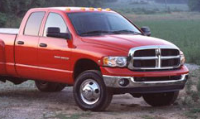How tire wieght affects acceleration
#1
ok i actually looked it up.... so 1oz on a 17inch rim is equal to 25lbs of rotating mass at a 100mph...so for instance lets say you drop 5lbs off one rim... 5lbs x 16oz= 80oz
Then take the 80oz and multiple by the 25lbs of rotating mass= 2000lbs of rotating mass thats been removed... and thats just one rim!!!
Im still figuring out how much this affects the acceleration, but from what iv read it helps with handling, braking, acceleration, ride quality.
Then take the 80oz and multiple by the 25lbs of rotating mass= 2000lbs of rotating mass thats been removed... and thats just one rim!!!
Im still figuring out how much this affects the acceleration, but from what iv read it helps with handling, braking, acceleration, ride quality.
Last edited by honkytonkkid; 01-29-2009 at 11:54 PM.
#2
#4
You're over thinking this a bit. 1 oz of mass rotating at 100 MPH is...1 oz of mass. Accelerating it will require the same amount of energy, regardless of its speed. Now it's position on the rim makes a bit of difference, but compared to aerodynamic drag and the weight of the truck, it quickly becomes insignificant.
Things only start to weigh more when you start moving really fast...somewhere around the speed of light.
Lighter wheels, besides reducing overall curb weight, have smaller moments of inertia. Remember, "An object at rest tries to remain at rest". Besides trying to get a hulking Ram up to speed, the engine also has to put a small amount of energy into overcoming the inertia of the wheels and tires.
A lighter wheel will sap (slightly) less energy from the finite amount being transmitted from the drive train. It will, in theory, make the truck faster. But talking about "2000 pounds of rotating mass" isn't meaningful.
Light wheels and tires improve braking by the same principle. Also, *smaller* wheels will make acceleration and braking stronger, even if they are the same weight. Suspension damping will improve with less unsprung weight as well.
Things only start to weigh more when you start moving really fast...somewhere around the speed of light.

Lighter wheels, besides reducing overall curb weight, have smaller moments of inertia. Remember, "An object at rest tries to remain at rest". Besides trying to get a hulking Ram up to speed, the engine also has to put a small amount of energy into overcoming the inertia of the wheels and tires.
A lighter wheel will sap (slightly) less energy from the finite amount being transmitted from the drive train. It will, in theory, make the truck faster. But talking about "2000 pounds of rotating mass" isn't meaningful.
Light wheels and tires improve braking by the same principle. Also, *smaller* wheels will make acceleration and braking stronger, even if they are the same weight. Suspension damping will improve with less unsprung weight as well.
Last edited by cramerica; 01-31-2009 at 02:21 PM.




